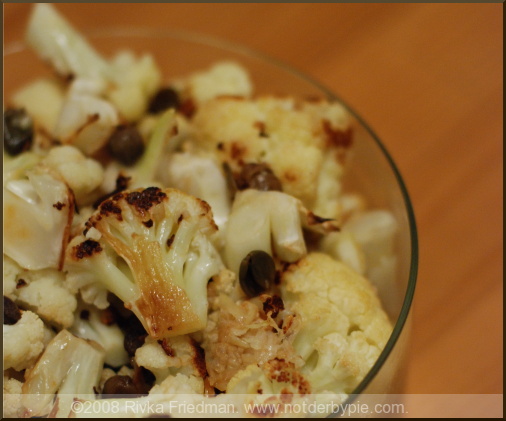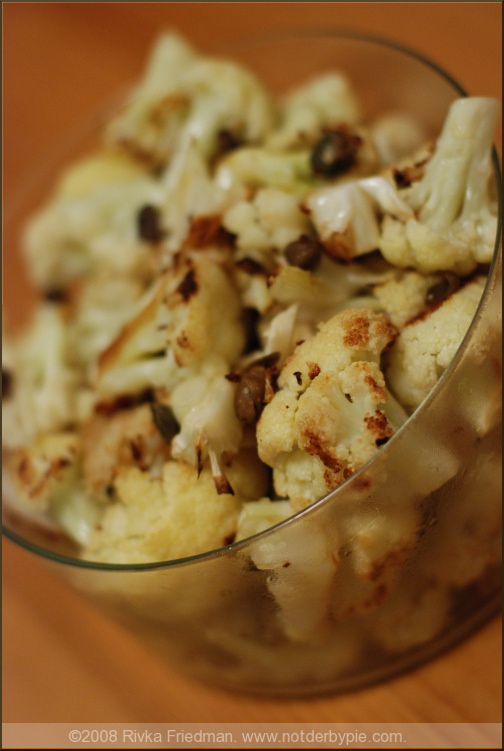When we cook, we use ingredients and we employ techniques. There is an abundance of information about these ingredients and techniques; some of it we know, some we could really stand to learn. When does an ingredient perform best? How does it behave in different combinations and conditions? When is a given technique best employed? Which steps are absolutely necessary and which can be skipped in a pinch?
We know much of this information already. To give a few examples:
- Eggs make dishes lighter. Whipping the egg whites? Even more so.
- Onions and garlic contain a lot of natural sugar that will caramelize and mellow when heated.
- Applesauce and yogurt are viable alternatives to the fatty liquids in baked goods.
There's a lot of other information we could really stand to learn. Here are some things I'm thankful to have learned from cookbooks, food articles, and plain old trial-and-error:
- a good dish balances the five dimensions of taste: sweet, sour, salty, hot, and umami (i.e. glutamate, which rounds out the other flavors)
- baking powder contains its own acidic agent; baking soda needs some sort of acid to be activated.
- Lots of time, little yeast, and no kneading can produce one of the best loaves of bread ever invented.
So you see, there's a lot of knowledge floating around out there about what we eat and how we make it. Recipes can be useful in providing bite-sized chunks of information in digestible form (no more food metaphors). But here's the thing about recipes: they transmit that information so absolutely, so authoritatively, that the cook feels reluctant, even scared, to change anything. Recipes are what make you stand by the oven, wiping your brow, because your quiche didn't cook in the half-hour promised. They're what make you think twice about even making a quiche, if you don't have the requisite amount of mushrooms for the mushroom one, cheddar for the cheddar one, etc. You could run to the grocery store at the last minute and buy exactly 2 1/2 cups of mushrooms, a mix of button, cremini and portabello as called for. Alternatively, you could save yourself the headache and improvise.
Improvisation: friend, not foe.
I treat recipes not as rules, but as inspiration. This is how I was raised. With the exception of my dad's Sunday-morning fannie farmer pancakes, my mom's linzer torte and a couple other unchanged family staples, almost everything I ate growing up was a product of cookbook and creativity.
Take Thanksgiving as an example of how we operate. My mom and I wrote up a menu skeleton -- brothy soup, cornbread, "main" or some sort, two chutneys/sauces, squash with something, interesting stuffing, vegetable, three pies -- and then looked at about 30 recipes online for inspiration. What we gathered from our reading was as follows:
- the NYT dining section had a great recipe for broccoli rabe strata that we'd riff on for our main dish.
- lots of cranberry chutney recipes call for chilies, so we'd include some in our sauce.
- mushroom soup is flavorful without being heavy, so it's the perfect start to a big meal.
- a rice recipe calling for cranberries and apple cider would be perfect with bread as stuffing.
We used this to draft our shopping list. Once we had all the ingredients, making the food was a processes of taste-and-adjust. I admit that it takes a lot of practice to get good at this. The more food you make, the better your palate becomes.
People have written countless posts, articles, even books, about the ease (and importance!) of adjusting recipes. Chief among them is this, my favorite quote from chef Michael Ruhlman's newest book, The Elements of Cooking, which I read cover-to-cover in a Barnes & Noble one afternoon. Modeled after Strunk and White's The Elements of Style, it's practically a dictionary of the actual elements of cooking (heat, etc), the terms used in foreign (mostly French) kitchens, as well as basic ingredients. Here's what he has to say about recipes:
Recipes are not assembly manuals. You can’t use them the way you use instructions to put together your grill or the rec room Ping-Pong table. Recipes are guides and suggestions for a process that is infinitely nuanced. Recipes are sheet music. A Bach cello suite can be performed at a beginner’s level or given extraordinary interpretation by Yo-Yo Ma—same notes/ingredients, vastly different outcomes.
How to use a good recipe: First read it and think about it. Cook it in your mind. Envision what it will look like when you serve it. Try to know the outcome before you begin. Read a recipe all the way through not only to understand it generally, but to make your work more efficient and to avoid making errors or taking unnecessary steps. Perhaps a dough needs to chill for an hour in the middle of a preparation, perhaps meat needs to be salted for twenty-four hours, or a liquid must be simmered, then cooled. The recipe suggests adding the flour, baking powder, and salt one at a time, but perhaps you can combine all the dry ingredients ahead of time while you’re waiting for the butter to get to room temperature so you can cream it with the eggs. Taking a few minutes to read a recipe, acting out each step in your mind as you do, will save you time and prevent errors.
Measure out or prep all your ingredients before you begin. Don’t mince your onion just before you need to put it in the pan, have it minced and in a container ready to go, have that cup of milk and half cup of sugar set out before you. Good mise en place makes the process easier and more pleasurable and the result tastier than preparing a recipe with no mise en place.
If you’re unsure about an instruction, use your common sense. You’ve already imagined in your head what the goal is. Work toward that goal using all your senses.
How to perfect a good recipe: Do it over again. And again. Pay attention. Do it again. That’s what chefs do. Often great cooking is simply the result of having done it over and over and over while paying attention. Great cooking is as much about sheer repetition as it is about natural skill or culinary knowledge. - Michael Ruhlman, The Elements of Cooking: Translating the Chef's Craft for Every Kitchen
If that's not clear, recipes are blueprints, not rulebooks. Play around a bit in the kitchen, and as always, trust your gut. Unless you think you're a horrible cook; in that case, you can always trust my gut. :)
I'd love to hear feedback from you lovely readers out there in cyberspace: how do you consult recipes? Are there steps you chronically skip or mess up? What are your sources for inspiration when it comes to adapting recipes? Please -- do share!
 Before you get annoyed that the title of this post is dramatic without being descriptive, consider the following: this recipe has 6 ingredients, including salt. It takes 25 minutes start to finish and is easily the most delicious cauliflower dish I I've ever had ever ever. Ever. Better to tell the world how wonderful it is than to try to name what can only be described as good, yes?
Before you get annoyed that the title of this post is dramatic without being descriptive, consider the following: this recipe has 6 ingredients, including salt. It takes 25 minutes start to finish and is easily the most delicious cauliflower dish I I've ever had ever ever. Ever. Better to tell the world how wonderful it is than to try to name what can only be described as good, yes?








